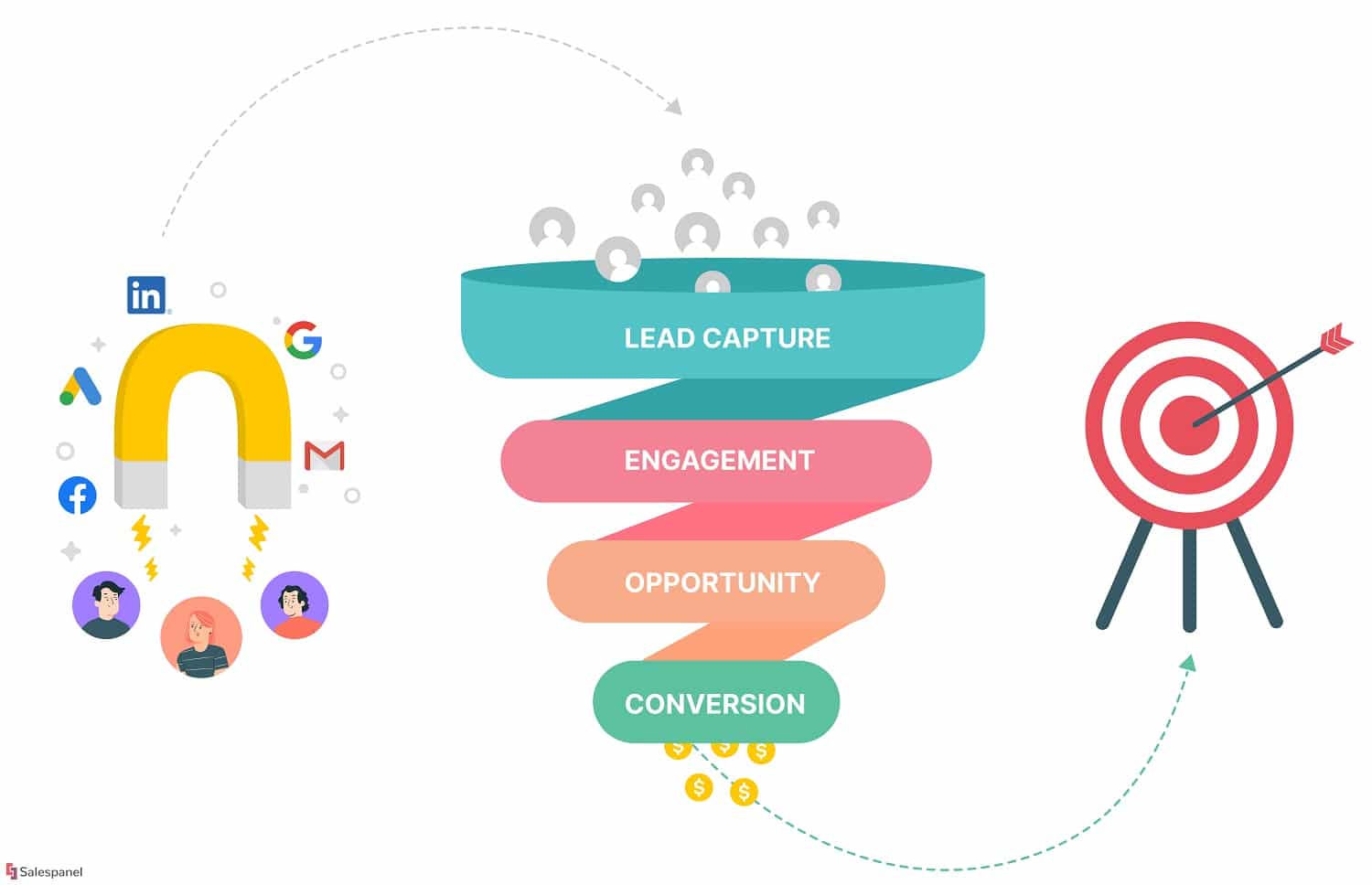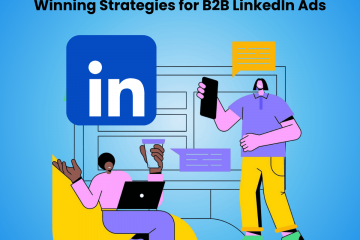4 Digital Marketing Strategies To Achieve Effective Lead Generation

The marketing strategies of businesses worldwide have evolved over the years. Long gone are the days of knocking door-to-door or checking the telephone directory to generate leads. Businesses are now geared toward maximizing digital marketing to increase profit, build brand awareness, and reach a wider market.
In this fast-paced digitalized world, the role of digital marketing is crucial in ensuring that businesses will thrive, maintain sustainability, and succeed. Companies continually pursue unconventional and innovative tactics in generating leads and in marketing their products/services.
One advantage of digital marketing is that it enables businesses to conveniently collect customer data and analyze their buying habits. This allows companies to personalize marketing campaigns, creating a much more unique end-user experience. Digital marketing also offers cost-effective options for businesses to boost advertising campaigns.
Additionally, businesses are acquiring the services of marketing agencies to produce top-quality promotional and advertising materials. Marketing agencies in various parts of the world have explored the potential benefits of effective digital marketing by offering services, such as online brand promotions, online advertising, web content making, and graphic designing.
Lead Generation In Digital Marketing
Leads are essential for any type of business to grow. By definition, a lead is a person who has shown interest in a product or service offered by a business. The process of attracting these leads with the end goal of converting them into customers is called lead generation. In digital marketing, generating leads could be through online channels, such as webpages, email campaigns, videos, and social media pages.
Compared to traditional marketing, digital marketing has the capacity to reach a much broader market. Other reasons as to why companies have engaged in digital marketing are:
- Engages customers
- Increases customer loyalty
- Targets the right consumers
- Makes brands more credible
Utilizing the right strategies in digital marketing can boost a corporation’s chance of improving its business and gaining profits in the long run. Determining which methods of digital marketing strategy to apply, however, might be challenging. Factors to consider when deciding on what method to utilize would include changes in consumer needs, habits, and digital marketing trends. It’s vital for companies to conduct research and run tests in identifying which digital marketing tactics would work best for their products and consumers.
Digital Marketing Strategies
With the rise of technological advancements, creating leads through online marketing is now easily accessible for modern businesses. Listed below are various uncomplicated yet effective digital marketing strategies to help your business generate leads.
Social media is probably one of the more affordable and convenient methods in digital marketing. According to global social media statistics, the number of social media users have now reached 4.55 billion. The average time spent by these users on social media is up to two hours per day. Among the top reasons for using social media include connecting with family and friends, for entertainment purposes, and for finding products or services they want to purchase.
With such a large audience reach, your business can greatly benefit by utilizing social media platforms in generating leads. Social media platforms have channels that allow for free posting of your product photos, videos, and content. These platforms, additionally, have apps that enable you to schedule your postings on a daily or weekly basis. Your audience also has easy access to information of your company profile, contact numbers, and product details.
Social media is also user-friendly and easy to navigate. If a potential buyer likes your product, they can easily screenshot photos and share it to other potential customers. You can also opt to pay for a certain amount to create ads for your product. Your leads will not only be limited to locals, but you’re also able to reach potential international consumers as well.
Users can easily engage with you when you’re available online. You can connect with a specific audience, build rapport, and do a follow-up to convert these leads into consumers.
2. Email Marketing
Considered to be the oldest form of digital marketing, email is still effective when it comes to generating leads and selling products for your business. Studies have shown that there are over four billion email users globally, and 95% check their emails on a daily basis for work purposes. With such a large market, your business can opt to use email as a means to sell or promote your products or services.
These are the most common email marketing methods used by a majority of businesses:
- Promotional emails – a method that entices your target audience to purchase a new product. Promotional emails offer exclusive deals and incentives to buyers.
- Email newsletters – a popular type of email marketing, newsletters provide the latest updates and information about your products or services. They may come in different forms, such as weekly blog posts on new hires, upcoming company webinars, and updates on new product releases.
- Transactional emails – automated emails that you may receive from sites confirming an order or shipment
- Video emails – innovative method of showcasing your company story or product details
Dedicated emails – a standalone email that contains information of one product or service
It’s essential to keep in mind that the first step in creating a successful email marketing campaign is to build an email list. Manually generating an email list from your existing file is time-consuming. There are online tools available to assist you in generating a clean email list that’s hassle-free.
3. Content Marketing
Another convenient method of generating leads is through content marketing. This marketing strategy attracts customers through sharing of online articles, blogs, videos, and other social media posts. The main goal of content marketing is to distribute engaging content that inspires, educates, and convinces. Your content should be helpful and valuable to online consumers.
When your sites or posts have compelling content, leads are most likely to spend more time on them. This might pique their interest into engaging with you and, eventually, purchasing your offerings.
There are different types of content marketing, and these include:
- Blog posts/articles
- Podcasts
- Videos
- eBooks
- Social media posts
- Infographics
- Online quizzes
- Checklists
- Webinars
- How-to-guides
4. Pay-Per-Click Advertising
Pay-per-click (PPC) is defined as a marketing method that strategically places ads online, and advertisers pay a fee each time a visitor clicks those ads. Rather than organically creating traffic, PPC buys visits for your site.
Paid search ads are the most common type of PPC advertising. These ads usually appear at the top or bottom section of a search results page. When a user types a specific keyword that’s related to a business product, the ad might appear on the results page. Other forms of PPC ads are display ads, remarketing ads, and social media ads.
PPC advertising is effective in producing leads as it has numerous advantages. It allows for easy reach of targeted audiences, swiftly increases website traffic, and provides measurable results.
Final Thoughts
Establishing an effective digital marketing strategy to increase your business leads might be challenging at first. By conducting initial research on the basics of online marketing and lead generation, you’re able to immediately identify which methods are suitable for your business. Essentially, you’ll gain in-depth knowledge on how to effectively strategize your digital marketing campaign that guarantees your business’s success.
Sell more, understand your customers’ journey for free!
Sales and Marketing teams spend millions of dollars to bring visitors to your website. But do you track your customer’s journey? Do you know who buys and why?
Around 8% of your website traffic will sign up on your lead forms. What happens to the other 92% of your traffic? Can you identify your visiting accounts? Can you engage and retarget your qualified visitors even if they are not identified?


